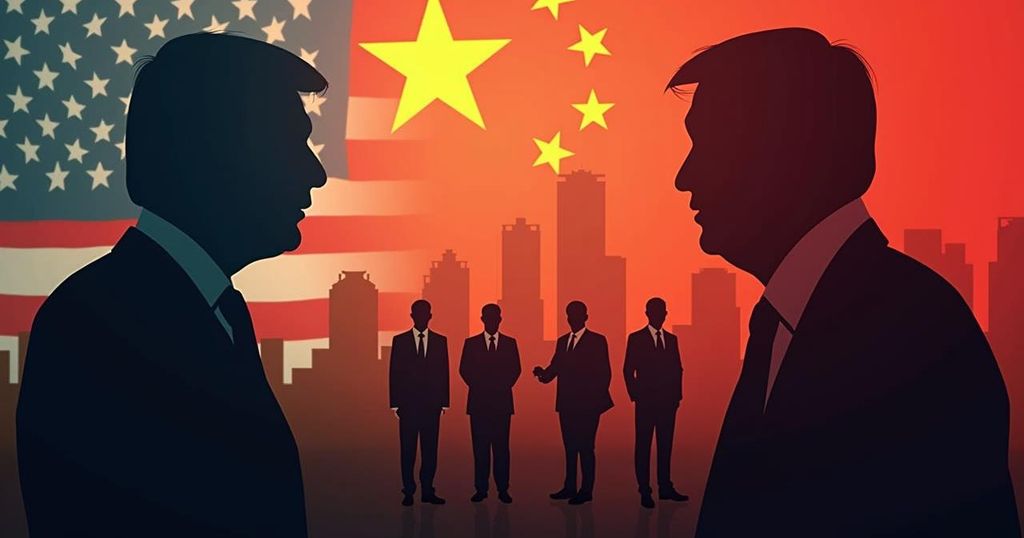Biden Administration Seeks to Prevent Economic Dependence on China, Asserts U.S. Ambassador
U.S. Ambassador to China Nicholas Burns asserted that the Biden administration aims to block a potential ‘second China shock’ through tariffs and international cooperation. He stressed the necessity for allies to jointly tackle China’s overcapacity and indicated the possibility of additional sanctions on Chinese entities if they continue supplying dual-use goods to Russia. His comments were made during the Transatlantic Forum on GeoEconomics and underscored the lessons learned from prior reliance on Chinese manufacturing.
Nicholas Burns, the United States Ambassador to China, emphasized that the Biden administration is committed to preventing a repeat of the economic disruptions caused by reliance on China, often referred to as the “second China shock.” Speaking through a video conference from Beijing, Ambassador Burns articulated the U.S. stance on the need for a collaborative effort among global allies to address the issues stemming from China’s excessive production capacity in various industries, specifically the electric vehicle (EV) sector. During his remarks at the Transatlantic Forum on GeoEconomics, organized by the Atlantic Council in New York, he urged allied nations in Europe and beyond to collaborate in addressing these concerns. As a component of this strategic approach, he issued a warning regarding potential sanctions against Chinese entities, advocating for actions aimed at curbing the supply of dual-use goods supporting Russia’s military operations, particularly in the context of the ongoing conflict in Ukraine. Ambassador Burns remarked, “I think that all of us around the world, in every single country, learned from the pandemic, don’t be reliant on a single source for critical materials.” He underscored the lessons learned from earlier economic shocks, notably referencing the significant increase in Chinese imports in the 2000s that resulted in substantial job losses in U.S. manufacturing, which amounted to over one million jobs during that period. This historical context underlines the administration’s current protective measures against economic vulnerabilities linked to reliance on China.
The discussion surrounding the dependency on China highlights historical economic trends and shocks experienced by the United States. The initial “China shock” in the 2000s marked an era of significant growth in Chinese imports, which had a detrimental impact on American manufacturing, leading to substantial job losses. In contemporary contexts, the Biden administration is concerned about a potential resurgence of such economic vulnerabilities, especially amid geopolitical tensions and the global fallout from the COVID-19 pandemic. The need for diversified supply chains has gained increased attention in light of these events, prompting calls for international cooperation to alleviate over-reliance on any single country, especially in sectors crucial for technological advancements and military capabilities.
In conclusion, Ambassador Nicholas Burns has articulated the Biden administration’s resolve to prevent a second occurrence of the economic disruptions associated with over-reliance on China. By advocating for a coordinated effort from global allies to curb China’s manufacturing overcapacity and imposing potential sanctions on Chinese suppliers, the administration seeks to maintain economic integrity and security. The lessons learned from previous economic shocks serve as a critical guide for contemporary policy measures aimed at strengthening U.S. economic resilience and supporting allied nations in countering aggressive supply chain dependencies.
Original Source: www.scmp.com




Post Comment